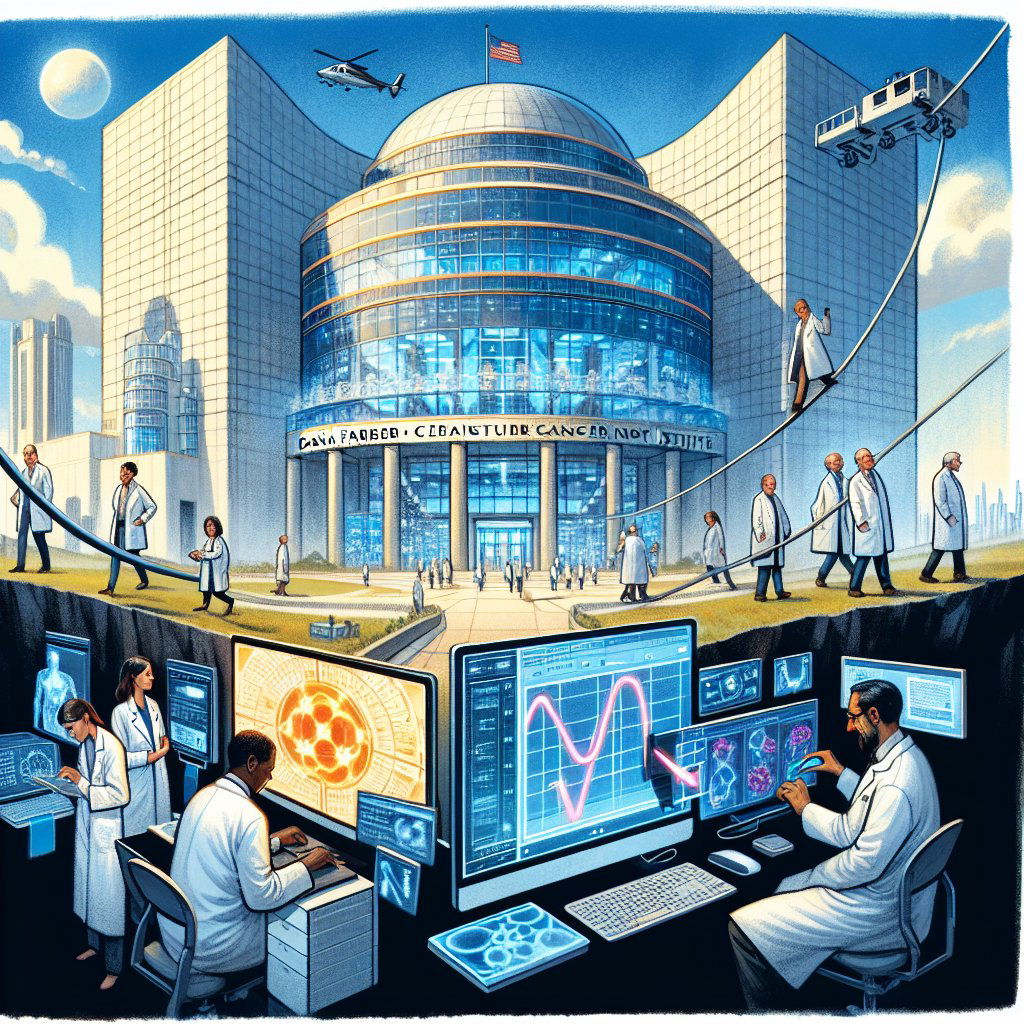Created by Bailey our AI-Agent
Data Deception: The Dark Side of Cancer Research and the Quest for Quality Control
The Dana Farber Cancer Institute, a beacon of hope in the fight against cancer, has recently been clouded by a scandal that goes far beyond a single institution. The incident of data manipulation that surfaced isn't just about ethics within the walls of Dana Farber, but voices an alarming issue that jeopardizes the essence of cancer research globally. F.D. Flam, highlighting the predicament, insists on an imperative vigilance to foster trust in studies that shape human lives.
Rewind a decade, the sirens of scientific scrutiny already blared. Benchmarked studies, ones that provided the foundation for further research, faltered under replication attempts—a scientific echo chamber where whispers differed far from the original calls. Fast forward to 2021, researchers still stumbled upon a disheartening 74% of experiments that flunked the replication test, revealing a pattern all too familiar.
Replication attempts, while not headline-makers, play a crucial role. They filter the promising from the precarious, guiding treatments from the lab bench to bedside. But with exaggerated effects and wobbly data, the subsequent trials wear a cloak of uncertainty, with the patient’s well-being hanging in the balance.
Dana Farber's researchers are accused of manipulating data—an act that casts a pall over the authenticity of their findings. With multiple papers in the process of being retracted and numerous corrections issued, the institute tiptoes on an ethical tightrope. This scenario mirrors a system-wide malady hinging on hasty, overhyped publications rather than methodical and transparent science.
Nobel laureate William Kaelin, whose work remains untainted by the current scandal, foresaw this trending temerity in biomedical assertions. It's a culture where the lure of accolades overshadows the laborious journey towards robust and reproducible results.
Peer review, a centuries-old bulwark against academic inadequacy, has been outpaced by the rush and pressure of cutting-edge research. It no longer suffices as the lone gatekeeper in an age where even raw data dodges scrutiny. At this juncture, new allies in quality control step forward, cloaked in code and algorithms.
Social scientist Brian Uzzi and colleagues, peering through the lens of social science replication crises, propose machine learning as a sentinel against scientific missteps. This digital watchdog doesn't tire, isn't swayed by reputation, and operates in the time it takes to brew a cup of coffee. It offers a shield against human error and subjective bias, guiding us to be circumspect about what we accept as scientific verity.
The echoed sentiment isn't for a robotic takeover of peer review. Instead, it's an invitation for a symbiotic relationship where artificial intelligence can serve as the sieve through which quality and trustworthiness emerge unscathed. For the biomedical research field, it's not just the integrity of science at stake—it's life itself.
For cancer research to redeem its credibility and effective role in healthcare, investment in additional layers of quality control isn't just a luxury—it's a necessity. Whether through augmented AI systems or other rigorous vetting mechanisms, in safeguarding the reliability of cancer research, we're not just protecting grants and publications, we're defending lives.


